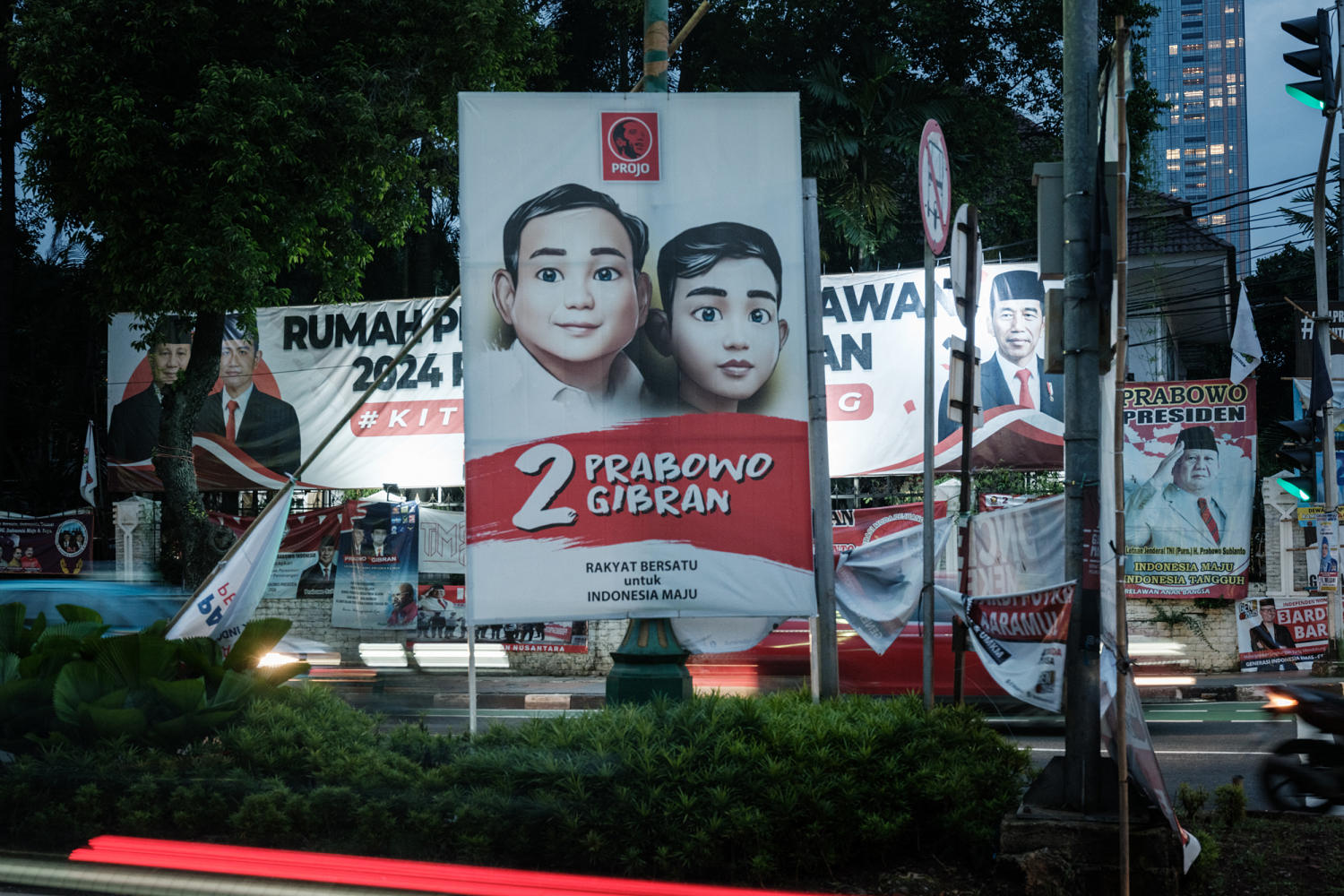Generative AI may change elections this year — Indonesia shows how

JAKARTA — Fika Juliana Putri, a 19-year-old shopkeeper in East Jakarta, plans to vote in Indonesia’s presidential election next week for a once-feared former special forces commander. She likes him, she says, because he’s cuddly.
A doe-eyed cartoon version of Gen. Prabowo Subianto — produced using generative AI — is emblazoned on billboards across Indonesia. It’s reproduced on sweatshirts and stickers, and featured prominently on #Prabowo-tagged posts that have some 19 billion views on TikTok.
Prabowo is Indonesia’s defence minister. But on social media, his chubby-cheeked AI avatar makes Korean-style finger hearts and cradles his beloved cat, Bobby, to the delight of Gen Z voters. About half of Indonesia’s 205 million voters are under 40.
The general elections on Feb. 14 in Indonesia, the world’s third-largest democracy, offer a glimpse of how generative AI may transform large-scale political campaigning, experts say.
The AI-generated cartoon has been central to the electoral rebranding of Prabowo, who is far ahead in polls. Instead of portraying himself as a fiery nationalist, as he did in two prior failed presidential bids, the 72-year-old’s new catchphrase is “gemoy” — which is Indonesian slang for cute and cuddly.
“I’ll vote for him because he’s gemoy,” said Putri, a first-time voter. “That’s the main reason.”
Prabowo — and his doppelganger created using technology from U.S. firm Midjourney Inc — is leading hundreds of candidates in using generative AI tools to create campaign art, track social media sentiment, build interactive chatbots, and target voters.
The Prabowo campaign and Midjourney, whose guidelines bar its use for political campaigning, did not respond to requests for comment.
“This is the first election we’re seeing utilize these tools at scale,” said Katie Harbath, who was until 2021 the top election policy official at Meta (META.O), opens new tab
and now writes a newsletter about technology and democracy.
Harbath, who expressed surprise that AI tools had been adopted by campaigns in Indonesia so quickly, said it was too early to judge the overall electoral impact of such “unprecedented and groundbreaking” use of technology.
Reuters interviewed 26 people to assess the use of AI technology in Indonesia’s campaign, including political advisors, lobbyists, tech executives, experts, and artists creating generative AI images for politicians. Some spoke on condition of anonymity as they were not authorized to speak to the media.
They described vendors and campaigns pushing the boundaries of guidelines issued by providers like Midjourney and generative AI market leader, OpenAI. The Indonesian government has yet to formulate binding rules on the use of AI tools.
With countries home to one third of the world’s population heading to the polls this year, including the United States and India, the elections in Indonesia are a test for how OpenAI will police its policies, according to seven political lobbyists and experts.
Many of the AI tools used in Indonesia’s election are powered by OpenAI, nine senior campaign staffers told Reuters. That includes Prabowo’s platform, according to his digital team’s coordinator.
The ChatGPT owner, based in San Francisco, last month unveiled rules banning its use for political campaigning amid global fears of AI interfering with elections. These include prohibitions on creating images of actual people, including politicians.
OpenAI said that it was investigating political chatbots and tools identified by Reuters in Indonesia as using its technology. It said an initial review found “no evidence” of its tools being used in the election and it was committed to transparency and elevating accurate information.
Political consultant Yose Rizal said the Pemilu.AI app he developed uses OpenAI’s GPT-4 and 3.5 software to craft hyper-local campaign strategies and speeches.
The Indonesian consultant said he has sold the app’s services to 700 legislative candidates. Reuters was not able to independently confirm the sales.
Pemilu.AI pulls together demographic data and crawls social media and news websites, allowing it to generate speeches, slogans, and social media content tailored to a constituency.
Candidates list their political priorities and choose how they seek to be portrayed. The most desired characteristics among politicians using Pemilu.AI in Indonesia, the world’s most populous Muslim-majority nation, are “humble” and “religious,” said Rizal.
Asked about OpenAI’s rules, Rizal said that Pemilu.AI does not engage “in the creation of political campaigns”. He described it instead as a communications tool to “support the decision-making process of candidates.”
Next, Rizal plans to take the…
Read More: Generative AI may change elections this year — Indonesia shows how

